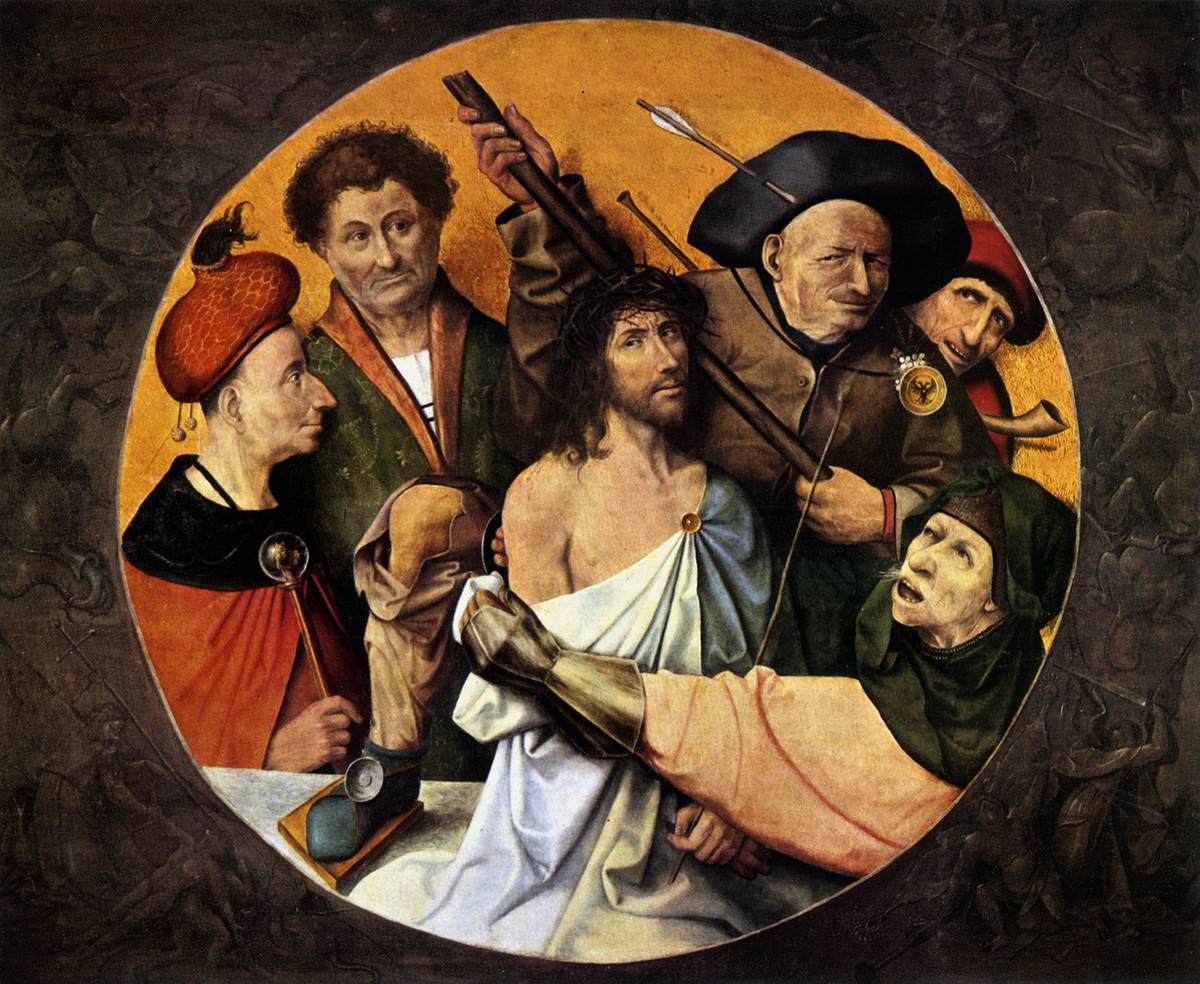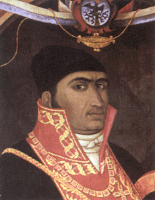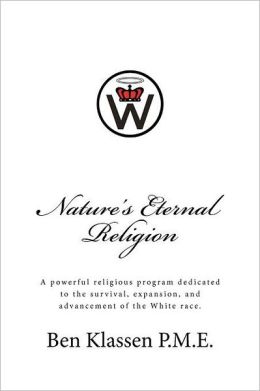Of the Holy Bible

Poor editing, logical fallacies, one-dimensional characters, and narrative inconsistencies ruin an otherwise imaginative dystopian fantasy novel in which a vengeful deity enslaves humanity into worshipping him. The King James Bible has an extremely intriguing premise, but the execution of that premise is poor and doesn’t do it justice at all. Regardless, the King James Bible is one of the world’s bestselling books of all time and has garnered a massive cult following, and understandably so, as it comes with a provocative promise of eternal life after death for anyone who believes it to be true. After reading it for myself, I find belief in this book’s alleged validity to be impossible.
It is worth noting that the King James Bible is not simply one book but an anthology of books (which are categorized under two iterations labeled as the Old and New Testaments) spanning many generations, all written by different authors at different points in time. And it shows. Oftentimes books in this collection offer redundant information and, at other times, contradictory information. In fact, the very first two chapters of the first book, titled Genesis, which lays out the origins of the book’s fictional universe, heavily contradict each other, and it all goes downhill from that point on. The editing in this book is absolutely atrocious.
The story starts off simple enough. There’s an omniscient, omnipotent, immortal celestial entity that has existed before the universe even began. This being, known as God, is bored and lonely and decides to create the universe to amuse himself. He creates light, which he calls day, followed by darkness, which he calls night, before he creates the sun. He then creates a flat earth of water, followed by dry land, grass and plant life, two great lights (one to rule the day and one to rule the night, even though the latter of which—the moon—isn’t actually a light and the former of which—the sun—would have been vital to the survival of the previously created plant life); firmament through which precipitation may occasionally be allowed to pass, creatures, and man. There’s also a tree with fruit that gives knowledge to whoever eats it and a sneaky, malicious talking snake, so if you’re into fantasy novels, the creation story at the beginning of Genesis should hold your interest.
It doesn’t take long before things go awry. The talking snake convinces the first woman, Eve, to eat fruit from the knowledge tree. Eve then convinces Adam, the first man, to do the same. God, despite supposedly being omniscient, is shocked to learn that they have done this and starts laying down the law on them, saying that men will be forced to work all the days of their life and women will be subservient to men. (To add insult to injury, childbirth will also be painful.) He punishes all of humanity for the disobedience of the first humans.
It seems puzzling that an omniscient God couldn’t devise a better creation plan. Even more puzzling is that the humans who disobeyed him were punished, along with all future members of humanity, for what they did despite not having any knowledge of what the consequences would be beforehand. Besides, if a creation is bad, does the blame rest upon the creation or the creator? Still more puzzling is that God doesn’t bother to attempt to refine his human design but sticks with the original failed one.
Things get all screwed up and a few chapters later. God, despite being omniscient, comes to a realization that his creation plan was a massive failure and that most of humanity is a lost cause and decides to destroy the world in a giant flood. That’s right; the world is destroyed at the very beginning of the book, and only a select few of each species are allowed to survive, somehow all crammed into an ark made from gopher wood. (How the plant life survives is not explained, nor is it explained how aquatic life survives salt water and fresh water mixing together, nor is it explained where the excess water ends up after the flood is over.) Why this omnipotent God couldn’t just stop the hearts of all humans who displeased him is quite beyond me. This flood plan is remarkably inefficient and serves as filler material, as the surviving human family needs to engage in incest to repopulate the world just like the first humans needed to engage in incest to originally populate the world. It’s just the same scenario rehashed. I can’t help but feel as though the contrived flood account was interpolated into the beginning of Genesis to dress it up and make it appear more impressive. It might help hook some readers early on, but I found it to be unnecessary.
Through various semi-comical, semi-irritating mishaps involving a giant tower, a child sacrifice practical joke, and a sold birthright, a tribe known as Israel arises. Israel is the tribe that God favors over all others, though it doesn’t take long for the Israelites to become enslaved in Egypt despite possessing the guidance of this omniscient God.
The second installment in the anthology, Exodus, deals with their emancipation from Egypt. God decides to give this guy named Moses some cheat codes for the universe, so that he’ll be able to use them in an attempt to intimidate the Pharaoh into allowing the Israelites to go free. Whether or not this plan would have actually worked is anyone’s guess, as God decides to violate the Pharaoh’s free will to allow the Israelites to leave (Exodus 4:21, 7:3, 7:13, 7:22, 8:19, 9:7, 9:35, 10:1, 10:20, 10:27, 11:10, 14:4, and 14:8), giving himself an incredibly flimsy excuse to send ten plagues on all of the Egyptians, punishing them for the Pharaoh’s compulsory obstinacy, just to show off. After this fiasco, the Pharaoh is finally allowed to let the Israelites go. Very shortly thereafter, the Pharaoh changes his mind about letting them go and chases them with his army. He almost catches them, but Moses uses his magical powers that God gave him to divide the waters of the Red Sea so that the Israelites can walk through them. There’s also a pillar of fire separating the Egyptians from the Israelites. If you enjoy fantasy epics, Exodus should be right up your alley.
Once the Israelites are through, the fire pillar dissipates and the Egyptians very stupidly charge into the path between the parted waters. The waters collapse onto the Egyptians, drowning them, and the Israelites celebrate the grisly deaths of their enemies before setting up camp in the desert.
This is where the real fun begins. From the remainder of Exodus and all throughout Leviticus, Numbers, and Deuteronomy, the vindictive, tyrannical God establishes a delightfully sinister theocracy under which basic happiness is impossible. He endorses slavery (Exodus 21:2-27, Leviticus 25:44-46, and Deuteronomy 20:10-14), public execution by stoning for failure to worship him on the Sabbath (Numbers 15:32-36), stoning of unruly children (Deuteronomy 21:18-21), and death as punishment for nearly every crime, usually by stoning. (Stoning seems to be his preferred method of execution.)
He also demands that virgin women who are raped marry their rapists (Deuteronomy 22:28-29), calls for genocide (Exodus 23:23-27, Leviticus 26:7-8, and Deuteronomy 7:1-5 and 12:2-3), and condones all sorts of other atrocities. The Israelites, who witnessed his power during the plagues and parting of the waters, have no choice but to submit to this new horrific celestial totalitarian regime.
After the death of Moses, Joshua takes over as leader of the Israelites. In Joshua, the sixth installment, the Israelites fulfill God’s call for genocide by fighting battles with other tribes all throughout the desert, winning them simply because God rigs them in their favor. After some initial victories, the Israelites forget about God’s power and start worshipping other gods.
In the next book, Judges, God, who freely admits to being jealous (according to Exodus 34:14, his very name is Jealous), punishes them for doing so and delivers them into bondage. When they repent, a “judge” is sent to free them. This happens multiple times throughout Judges, making for repetitive reading. (God also allows a man named Jephthah to sacrifice his daughter to him in exchange for a battle victory in Judges 11:30-40; a testament to how much he loves human death.)
After this nonsense goes on for awhile, delaying exposition, the Philistines arrive on the scene and pose a major threat to the Israelites. A guy named David scares them away by killing a Philistine giant by firing a rock at his head with a slingshot. He then becomes Israel’s king. (There’s also a disgusting yet somewhat amusing anecdote in which David slays two hundred Philistines, cuts off their foreskins, and gives them to Saul as a dowry for his daughter, Michal, in 1 Samuel 18:25-27. This seems like a very poor deal to me. I’ll bet that Saul later had buyer’s remorse.)
Some less important, not particularly memorable (save for God’s killing of King David’s illegitimate seven-day-old son in 2 Samuel 12:15-18, a census mishap in 2 Samuel 24:1-15, and an incident involving two she bears in 2 Kings 2:23-24) events take place throughout the next nine books before the reader is forced to trudge through 150 chapters of dull, repetitive, excessively slavish poetry written to God by one of his more abject followers in Psalms.
The author of that book has the audacity to claim that both God and his statutes are perfect (Psalms 119:142, 119:151, 119:160, and 119:172), even though this would mean that God would need to follow his own rules, which he doesn’t. It is also claimed in Psalms that happiness can be derived from bashing children’s heads against rocks (Psalms 137:9), which is a proclamation that thoroughly baffles me. I’m not sure what the author was going for here. Perhaps this verse is supposed to be some sort of black comedy joke intended to express the impaired judgment of those living under the theocratic dystopia depicted in this collection of books, or it might have been included to emphasize the ghastly nature of the aforementioned theocratic dystopia, or it might just be there for shock value.
[Chechar’s interpolated note: I think I have psychoanalyzed well those barbaric Semites in a passage of my book Hojas Susurrantes. Just click on this link and then scroll almost to the bottom of that entry until you hit the subtitle “The historical Israel”.]
Whatever the case may be, it’s far too mean-spirited. The author of Psalms also frequently and redundantly berates anyone who is not a member of the tribe(s) that God favors, making for tiresome and irritating reading.
The next three books provide even more dull reading material. After slogging through these books, the reader arrives at the writings of the Old Testament prophets.
Throughout Isaiah and Jeremiah, God ruthlessly annihilates entire nations that fail to submit to his terrorist demands. Isaiah also mentions unicorns (Isaiah 34:7), dragons (Isaiah 34:13), and satyrs (Isaiah 34:14) and identifies them as legitimate safety hazards, so if you enjoy fantasy novels, you should enjoy chapter 34 of Isaiah.
Furthermore, Jeremiah 10:1-5 forbids cutting trees out of the forest, adorning them with decorations, and displaying them as a holiday custom. A substantial portion of the cult followers who claim to live by this book’s teachings fail to uphold this passage, which is puzzling. (In fact, there are many passages that they fail to uphold.) It’s almost as if they don’t even realize that decorated trees are explicitly forbidden by their highly revered literary work, but that would mean that they haven’t actually read the entire book for themselves and are blindly accepting the subjective interpretations of others, which would be just plain absurd. Right?
The next book in the series is Lamentations, which is just as pathetic as it sounds. (The entire Old Testament is excellently summarized in one sentence by Lamentations 2:21.)
The celestial terrorism continues throughout Ezekiel, in which God sinks to a new low by demanding that Ezekiel eat cakes containing human excrement (Ezekiel 4:12). (The entire Old Testament is excellently summarized in one sentence in Ezekiel 25:17.) Ezekiel also sees creatures that each has four faces, four wings, and straight feet with calf’s soles in Ezekiel 1:5-28, so if you enjoy fantasy novels, you should enjoy that passage.
Some more less important events happen throughout the next ten books, which consist mainly of more divine terrorism and ultimatums. Jonah, in which a man survives being swallowed by a giant fish and is vomited up three days later, is amusing.
♣
The second (much shorter) iteration of the King James Bible, the New Testament, starts off with this guy named Jesus, who is supposed to be God in human form, gathering followers on Earth and spreading his word to them.
Given how much of a tyrannical, ethnic-cleansing maniac God was in the Old Testament, one would most likely expect Jesus to be a Terminator-style infiltrator who goes on killing sprees, but instead he’s a hippie. This almost complete character reversal makes the main protagonist (I use that word loosely) seem even more contrived and unbelievable.
Granted though, traces of God’s evil do remain within Jesus, as he brings his followers the most horrendous news of all; that anyone who fails to accept him as his or her totalitarian slave master will be tortured for all eternity after death! It is the epitome of horror, revamping God’s vindictive, petty, unforgiving nature that was established in the Old Testament.
The inherent problem with the premise of the Jesus story is that a man who is an omniscient deity incarnate would have extremely advanced knowledge; knowledge far beyond that of the humans who wrote this collection of books, called gospels. However, the gospel authors were able to work around it in an extremely clever way. The four authors telling the story of Jesus and his time on Earth all pieced together a generalized account of his life from minor, disjointed details and the four resulting accounts all heavily contradict each other. Brilliant!
Some fans of this book claim that Jesus abolishes the atrocious laws established in the Old Testament, making up for them. This, however, is not the case, as Jesus himself states in Matthew 5:17-18 and Luke 16:17 that he came not to “destroy the law” but to fulfill it and that not “one tittle” of the law would fail until “heaven and earth pass.” Once again it seems as though those who claim to admire and adhere to this book don’t actually know it very well. Go figure.
Two of the gospel authors claim that Jesus was born to a virgin, which is rather far-fetched, but then again, it is a fantasy novel. Jesus also claims that anyone who has faith in him will be able to magically transfer mountains and trees into the sea (Matthew 17:20 and 21:21, Mark 11:23, and Luke 17:6), further emphasizing the alternate, fictional universe (where sorcery is possible) in which this story is set.
Also, in this universe, all ailments are caused by demons, which Jesus is able to cast out of the ill and physically deformed.
The end of the story of Jesus and his time on Earth, however, ruins the whole thing, as it is completely nonsensical. Jesus (also God) is there to die for the imperfect nature of all humans (in which God created them) as a blood sacrifice to God (also himself) simply so that he can ask God (also himself) to forgive all humans for involuntarily existing in an imperfect nature in which they were created by God. It is supposed to be a noble sacrifice, but it instead comes across as utterly absurd and obscene.
It isn’t even a sacrifice, because Jesus magically comes back to life three days later, which he knew ahead of time would happen. Besides, given the other resurrections throughout this anthology of books (1 Kings 17:21-22, Ezekiel 37:9-10, Matthew 27:51-53, Mark 5:41-42, Luke 8:54-55, and John 11:41-44), the Jesus resurrection doesn’t seem all that significant. It would have had greater effect if those other completely random resurrections had been omitted. As I’ve already stated, this book would have benefited tremendously from better editing.
The next 22 books describe the actions and teaching of the followers of Jesus. The writings of his followers contradict each other numerous times regarding what is required to attain salvation. (Is it faith or works or both?)
Most of these books are written by some guy named Paul and are comprised of rambling about how faith is the only way to attain salvation (even though Paul apparently was made witness to the spirit of Jesus in Acts 9:3-6, making faith for him impossible, making him a hypocrite) and how sex is evil and women are inferior and must be submissive to men and all kinds of other crap that Jesus doesn’t say in any of the gospels. The writings of Paul are irritating and dull. (Although 1 Corinthians 1:18-29 is good for a laugh.)
After these writings, the final book, Revelation, describes the end of the world when Jesus comes back to kill all nonbelievers. Revelation is replete with cartoonish imagery and prophecies more vague than an astrology horoscope. It feels to me as though it was tacked on as an afterthought so that the book could have a climactic ending, no matter how contrived. What exactly was the point of adding all of this extra material to the end of the book if the savior of humanity was already dead and resurrected?
As far as dystopian novels go, I prefer George Orwell’s Nineteen Eighty-Four by a long shot. That book isn’t self-contradictory, poorly written, fallacious, or outright absurd and it doesn’t insult the reader’s intelligence by claiming that Big Brother is good.










